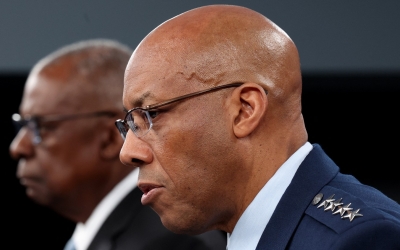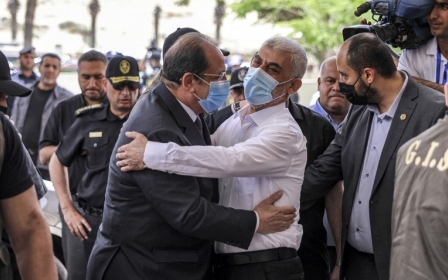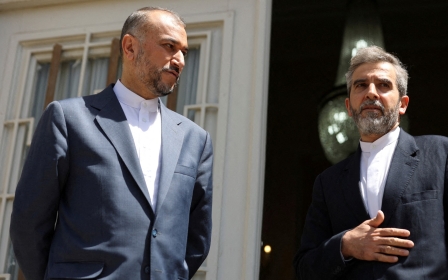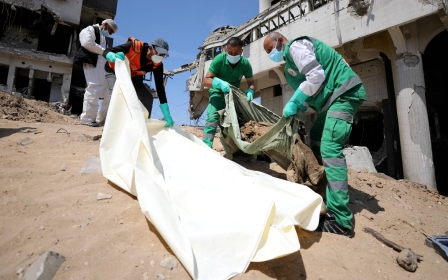Reported US-Israel plan for Gaza 'day after' leaves enclave in 'permanent instability'
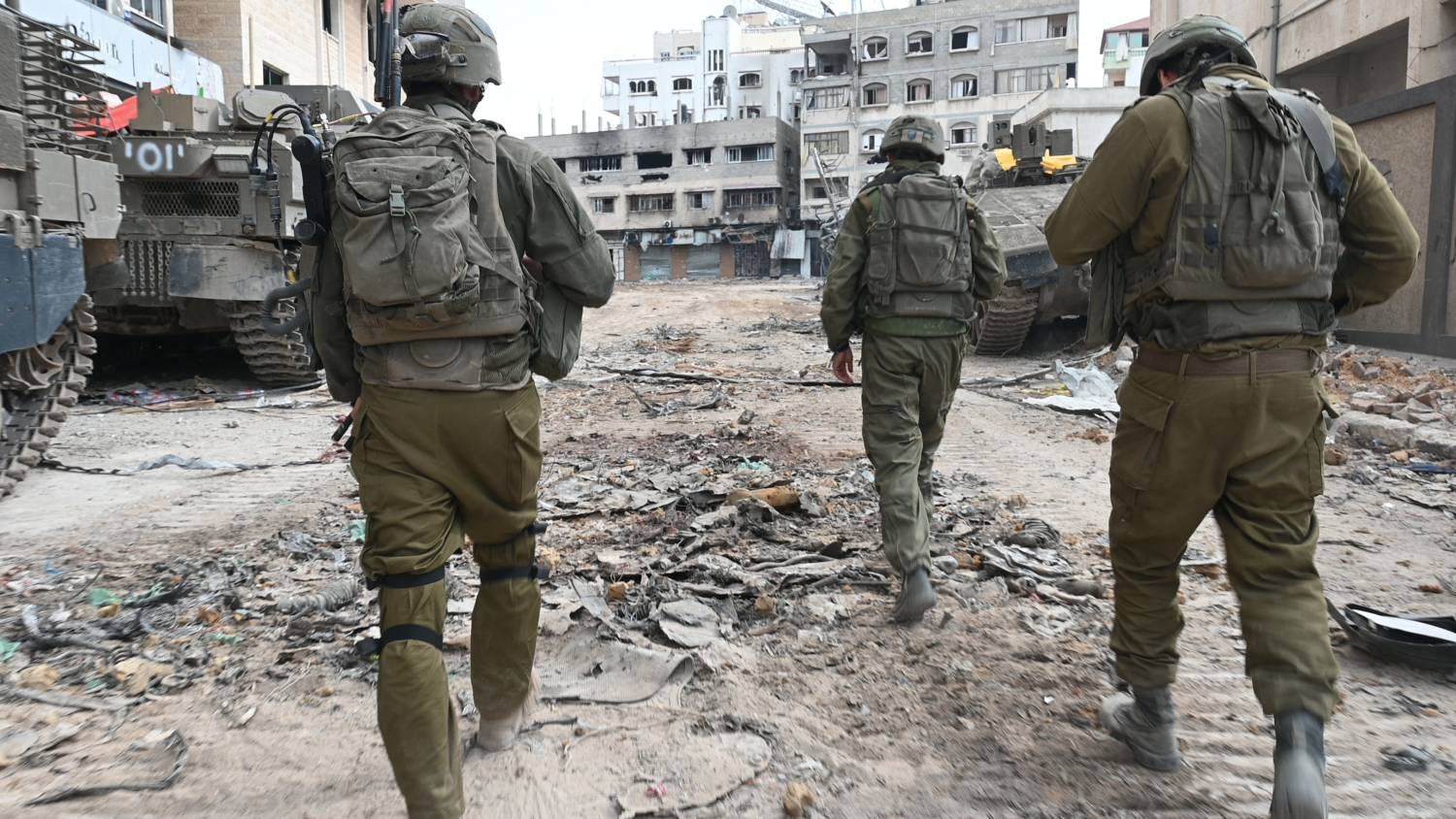
A recent report in The Washington Post highlighted that conversations between top US officials about a potential end to Israel's war on Gaza are formulating into a multi-step plan but a "still-fuzzy day after".
The reported five-point plan, however, does not describe a concrete end to an Israeli security presence in Gaza and paves the way for an ongoing Israeli occupation of the Strip with Hamas unable to be fully eliminated.
One aspect of the plan that Israel has finalised is its assault on Rafah, the southernmost city in Gaza where hundreds of thousands of Palestinians have fled since the start of Israel's war.
The invasion would not be the full-scale one Israeli leaders were touting earlier this year, and would, according to US officials, be a "more limited assault" that Washington thinks "will result in fewer civilian casualties".
Nothing in the outline from The Washington Post articulates US concerns about the humanitarian crisis and refugee crisis that the plan - which the report says Biden wouldn't oppose - could cause in Rafah.
New MEE newsletter: Jerusalem Dispatch
Sign up to get the latest insights and analysis on Israel-Palestine, alongside Turkey Unpacked and other MEE newsletters
Israeli forces already launched an assault on Rafah earlier this month, seizing the crossing with Egypt and putting a halt to the aid that was trickling into Gaza from there. Egypt has said that Israeli operations are preventing humanitarian aid from entering through the Rafah crossing, and Israel - and as of this week, the Biden administration - have laid the blame for the closure of Rafah squarely on Egypt.
The Post's report also says that Hamas will continue to have a presence in Gaza, a conclusion that runs counter to Israel's main objective since October, which has been the full eradication of Hamas.
"If you look at it from a narrow military lens, then fine, Israel has managed to degrade Hamas. And Israel has probably managed to ensure that Hamas cannot repeat October 7 for many years to come," Adam Weinstein, deputy director of the Middle East programme at the Quincy Institute for Responsible Statecraft, told Middle East Eye.
"But at the same time, what it's created instead is a permanent instability. And so, it depends whether they want to focus on a political solution or a narrow military solution. But a narrow military solution will inevitably fail without a political solution and that's the crux of this problem."
The military strategy of Israel has begun to receive increased criticism from Washington, with the chairman of the joint chiefs of staff General Charles Brown berating Israel's lack of gains in Gaza.
“Not only do you have to actually go in and clear out whatever adversary you are up against, you have to go in, hold the territory and then you’ve got to stabilise it,” Brown said.
Another key US objective that has gone by the wayside and is crucial to preventing a compounding humanitarian crisis is ceasefire talks, which have seen little to no progress since Israel rejected a CIA-mediated peace proposal earlier this month.
Qatar, a key country in negotiations between Israel and Hamas, on Tuesday said that talks are "close to stalemate", and Egypt, another key mediator, on Wednesday threatened to pull out from negotiations because of "attempted doubts over its role".
'A future intifada'
Israel's war on Gaza has been going on for eight months now, and so far, Israeli forces have killed more than 35,000 Palestinians, most of whom are women and children, according to the Palestinian health ministry.
Israeli forces have also targeted schools, hospitals, and UN shelters, while also killing journalists, healthcare workers, and aid workers. Rights groups have accused Israel of committing war crimes in the enclave, a charge Israel denies.
Yet eight months in, Palestinian fighters are still able to target Israeli forces throughout the area, with three Israeli soldiers being killed in northern Gaza on Wednesday.
The rough outline of the "day after" plan in Gaza that was reported states that Israeli leaders say 75 percent of Hamas's "organised military capacity has been destroyed" but that the Palestinian group will continue to be embedded in the local population.
A recent report by Politico also said that according to US intelligence, only about 30-35 percent of Hamas fighters have been killed by Israeli forces in Gaza, and 65 percent of Gaza's tunnels are intact.
Neither report mentions how much damage has been done to other armed groups operating in Gaza, including Palestinian Islamic Jihad, and it's unclear whether the reported US and Israeli intelligence identifies those groups as Hamas.
The solution reportedly outlined by US officials is that Israel will plan to "conduct regular raids" as it does in the West Bank.
"Indeed, the West Bank might be a model for how Gaza evolves going forward," David Ignatius wrote in the column for the Post.
Weinstein said that if the plan being floated is to model Gaza after the occupied West Bank, where Israeli security forces have launched regular military raids, to a deadly effect, even before October, it will set the stage for increased instability.
"If your goal was to degrade Hamas enough that Hamas could not present a credible threat to Israel for let's say the next 10 years, then fine I suppose it makes sense. If your goal is to have stability and ensure that you don't face another intifada in the future, then it doesn't make sense," Weinstein said.
"What Israel has allowed the settlers to do and what Israel has done in the West Bank in terms of these various raids that often kill innocent people is setting the stage for a future intifada."
This article is available in French on Middle East Eye French edition.
Middle East Eye delivers independent and unrivalled coverage and analysis of the Middle East, North Africa and beyond. To learn more about republishing this content and the associated fees, please fill out this form. More about MEE can be found here.


